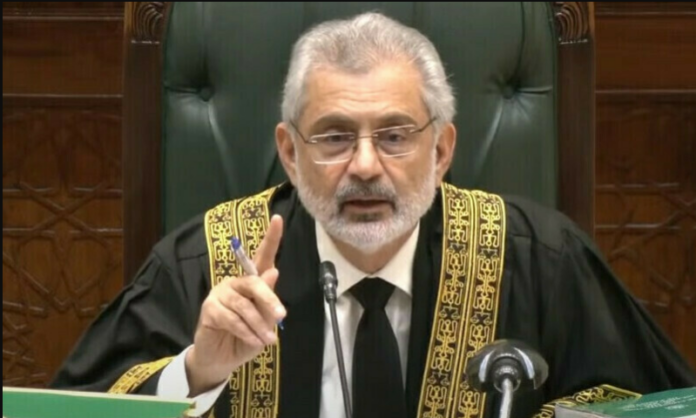In a recent hearing concerning appeals from the Punjab election tribunals and the Election Commission, Pakistan Tehreek-e-Insaf (PTI) leader Salman Akram Raja’s lawyer, Hamid Khan, raised objections to Chief Justice Qazi Faez Isa presiding over the case.
Despite Khan’s concerns, Chief Justice Isa firmly rejected the objections.
The Supreme Court was reviewing the Lahore High Court’s ruling on the establishment of the election tribunals, with a five-member larger bench led by Chief Justice Isa overseeing the proceedings.
During the hearing, Hamid Khan argued that there were grounds for the Chief Justice to step aside from the case. In a direct response, Chief Justice Isa dismissed the objection and noted that he could recuse himself if he chose to do so.
He further instructed Hamid Khan to remain seated and assured him that he would have the opportunity to present his arguments later. However, after this exchange, Hamid Khan decided to leave the courtroom.
The case is significant, as it addresses critical issues surrounding the electoral process in Punjab. The discussions reflect broader tensions between the judiciary and political entities in Pakistan, particularly in the context of the PTI’s ongoing challenges.
The Chief Justice’s determination to maintain his position in the case underscores his commitment to ensuring that the judicial process continues without interruptions from political disputes.
As the Supreme Court moves forward with the hearings, the implications of this case will likely resonate throughout Pakistan’s political landscape, particularly in relation to the integrity of electoral processes and the role of the judiciary.










